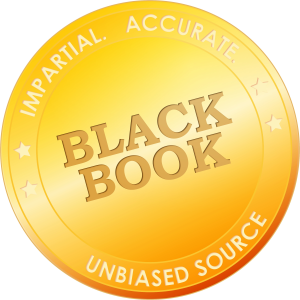Healthcare's Digital Divide Widens, Black Book Consumer Survey

Tampa, Florida, January 3, 2017 (Newswire.com) - Black Book’s national panel poll of consumers aims to judge patient adoption and acceptance of technology, as well as measure those impacts on the healthcare industry. The survey, conducted from September through December 2016, asked consumers to evaluate the technology they were exposed to, know of or interacted with as an active patient in the last twelve months.
57 percent of consumers with contact experience to hospital, physician or ancillary provider’s technology in 2016 report being skeptical of the overall benefits of health information technologies such as patient portals, mobile apps, and electronic health records mainly because of recently reported data hacking and a perceived lack of privacy protection by providers. The national survey which included 12,090 adult consumers. Key findings include:
Fear of Breaches Depresses Health Data Sharing
As the amount of available health data increases so does the hesitancy for consumers to share that information due to industry privacy and security issues.
The unwillingness of patients to comprehensively divulge all their medical information rose to 87 percent in Q4 2016.
Fewer consumers at this point in time do not want their digital health histories to extend beyond their physician and hospital, previously measured in 2013 at 66 percent who were willing to divulge all personal health data to achieve enhanced care. Especially alarming to respondents were the concerns that their pharmacy prescriptions (90 percent), mental health notes (99 percent) and chronic condition (81 percent) data is being shared beyond their chosen provider and payer to retailers, employers, and or the government without their acknowledgment.
In a follow up to an Office of the National Coordinator (ONC) survey, Black Book found this year that 70 percent of American distrust health technology, sharply climbing from only 10 percent in 2014.
89 percent of consumers with 2016 provider visits report withholding health information during visits. 93 percent responding expressed concerns over the security of their personal financial information, as high deductible Obamacare plans and co-pays have more banking and credit card data passing from providers.
69 percent of patients confirm their belief that their current primary care physician does not demonstrate enough technology prowess for them to trust divulging all their personal information.
Partial Patient Records Degrade the Reliability of Analytics
Patients are becoming more demanding of information, clinical alternatives and improved outcomes at the same time where pressure is on government and providers to reduce costs. Until the payment model moves to truly pay for value, some of the very innovative and effective health technology solutions may continue to be a hard sell to hospitals and physicians, according to survey results.
“Incomplete medical histories and undisclosed conditions, treatment or medications raises obvious concerns on the reliability and usefulness of patient health data in application of risk based analytics, care plans, modeling, payment reforms, and population health programming,” said Brown. “This revelation should force cybersecurity solutions to the top of the technology priorities in 2017 to achieve tangible trust in big data dependability.”
Conversely, survey respondents related that more technology the physician is perceived as using to manage the patient’s healthcare, the higher the trust level patients had in their provider. 84 percent of patients said their trust in their provider is influenced by how the provider uses the technology, rather than only 5 percent of consumers had any issue in trusting in the actual technology.
Overworked Hospital Nurses get another Duty
Patients discharged from hospitals under 200 beds report being the most challenged by the patient portals, engagement tools and monitoring systems provided. 92 percent of patients express difficulty understanding the instructions or use of the technological applications.
Hospitals over 300 beds have the most success with patient technology satisfaction and usability.
“We can likely attribute this to the role of patient technological education falls on discharge nurses in large facilities, “said Brown. The responsibility of mediating between patients and technology usually falls on nurses because they have the appropriate culture and clinical background to recognize actual patient needs and computer mastery.”
92 percent of nurse leaders in hospitals under 200 beds related there is no staffing time factored into the discharge process to improve patient tech literacy as compared to 55 percent of large hospitals which include patient portal orientations at discharge.
Physicians Don’t Want all that Information
94 percent of physicians responding to the provider section of the survey find all that data overwhelming, redundant and unlikely to make a clinical difference.
In contrast, 91 percent consumers with wearables believe their physician practice’s medical record system should store any health related data they request.
96 percent of physician office patients said they left their visit with poorly communicated or miscommunicated instructions on patient portal use.
94 percent with health or activity trackers said their physician, when asked, informed them the practice had no capability or interest in coordinating their outcomes currently via their EHR. 98 percent of patients using a nutritional or weight loss app had similar responses from their doctors.
Conversely, 82 percent of physicians surveyed report that some highly literate patients surfing healthcare internet sites collect both valid and invalid information about their condition, often complicating diagnoses and exceeding time allotments for visits currently under the current system.
Four in ten patients attempted to use the portal provided by their physician, but 83 percent found it difficult to navigate when at home.
85 percent of doctors lamented that the addition of EHRs and other technologies has made patient care too impersonal. Yet a larger disengage between doctors and patients is occurring, noted by the 89 percent of consumers surveyed demanding access to more information and choices in their treatment providers, locations and alternatives.
“In this age of healthcare consumerism people want to receive care through technologically enabled alternatives like telemedicine visits, secure email communications with their practitioner, and immediate access to records and scheduling,” said Brown.
91 percent of patients who find their apps and devices relevant to their health improvement felt slighted by their providers who would not accommodate their personal data.
Patient Technology Illiteracy is the next road block to achieving population health success
Patients who have higher health literacy rates are also the most skeptical about sharing data because of the lack of cyber security measures, particularly among medical groups, clinics and ancillary facilities according to survey results.
94 percent of providers recommend government funded programs to afford and enhance health technology literacy training to patients.
“With so many consumers skeptical of the benefits and security of HIT, the software developers must address a wider targeted patient population as we move forward in modeling, analytics and accountable care.
About Black Book
Black Book™, its founders, management and staff do not own or hold any financial interest in any of the vendors covered and encompassed in the surveys it conducts. Black Book reports the results of the collected satisfaction and client experience rankings in publication and to media prior to vendor notification of rating results and does not solicit vendor participation fees, review fees, inclusion or briefing charges, consultation requirements, and/or vendor collaboration as Black Book polls vendors’ clients.
Since 2000, Black Book™ has polled the vendor satisfaction across over thirty industries in the software/technology and managed services sectors around the globe. In 2009, Black Book began polling the client experience of now over 540,000 healthcare software and services users. Black Book expanded its survey prowess and reputation of independent, unbiased crowd-sourced surveying to IT and health records professionals, physician practice administrators, nurses, financial leaders, executives and hospital information technology managers. For methodology, auditing, resources, comprehensive research and Outsourced Revenue Cycle vendor ranking data see: http://www.blackbookmarketresearch.com
Source: Black Book Research LLC
